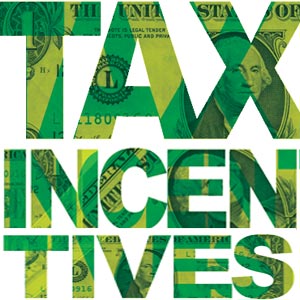We were writing in our last post about how the tax waiver incentive program in Memphis and Shelby County is broken, but even more to the point, despite our largesse in doling out almost $100 million in tax waivers a year, our economic trend line is still going decidedly south.
We wrote about changes from simply reducing the maximum number of years for a PILOT (Payment-in-lieu-of taxes), a fancy-sounding name for giving big businesses a tax holiday. We also wrote about how, if the amount of the waived taxes were cut in half, it could fund a much-needed investment program in our community’s quality of life – in fact, investments totaling $1 billion.
Then again, Shelby County Board of Commissioners and Memphis City Council – which have delegated their power to grant tax freezes – could set a policy that creates a ceiling for the amount that can be waived per job, because now, some of the per job tax benefits make little sense. And while the PILOT-granting agencies have adopted some noble-sounding criteria about insurance and decent wages, it’s the worst-kept secret in town that companies have ways to work around those requirements, particularly when the companies are in distribution.
Unfortunately, many elected officials have been hypnotized into thinking that these business incentives are pivotal in bringing and keeping these companies in Memphis while most research says it is anything but determinant. In fact, it’s mainly lagniappe, an extra goody that the companies demand because they can.
Magic Answers
There is general consensus among most economists and policy analysts that incentives are not good economic development policy, because 1) tax burdens are shifted to homeowners and small businesses (and small businesses are where most of the new jobs come from), 2) government is subsidizing big companies with scarce tax dollars that amount to a small fraction of their yearly incomes, 3) it’s tantamount to government picking winners and losers, which it has no expertise in doing, and 4) it deludes people from focusing on other smarter business job creation strategies and ways to create a better business climate.
Equally important, these tax giveaways give the appearance of being an easy solution, a magic answer, to economic problems that are always complex and frequently frustrating. It puts skeptical elected officials in a bad position – as the deal killer – and there is always more reward in taking credit for making a deal happen than in rejecting it and being second guessed. That’s especially true when you are term limited and the 15-year PILOT will continue long after you’ve left the public stage.
Also, there’s just something to be said for all the photo ops at those ribbon-cutting events. They’re the stuff of winning campaign brochures.
Research has shown – and so has every day experience here with PILOTs – that incentives are often explained by the “my neighbor is doing it” argument rather than by careful analysis or contrary explanations.
In other words, the goal for Memphis and Shelby County should be to find ways to make our community attractive without giving away the tax base and by using incentives selectively and strategically.
Start at the Beginning
So, what exactly should we do?
It’s been said that indiscriminate incentive-mad policies only lead to disaster with growing fiscal problems in local government, indiscriminate deal-making, and political backlash. We’ve seen all three already in Memphis and Shelby County.
And yet, there is a different course of action, and in its way, it is a return to common sense and logic.
First, Memphis and Shelby County must compete on quality public services. There’s nothing like a city with high quality of life investments – parks, effective policing, good K-12 schools and colleges, and customer-friendly services. In the end, the most important things to attract great talent and the companies that follow it are quality public services.
A New Way of Acting
Second, Memphis and Shelby County must shake their focus on tax competitiveness alone. Our community needs a well-balanced tax policy that supports a fiscal system that is predictable, efficient, and accountable.
Third, Memphis and Shelby County should limit PILOTs to strategic targets. The justification for a tax waiver has to be more than “they’re doing so we have to do it too,” and we need to set priorities in the kinds of companies we want and reward them for achieving our public policy objectives like inner city job development, and finally, quit giving away taxes to distribution centers who should understand the value of being in a city with its world-class logistics. Or restrict PILOTs to slow-growing areas, give them to companies that invest in research and development, find a way to support entrepreneurs, and make the incentives so they are fair to all companies and not just the one we’re chasing.
Fourth, Memphis and Shelby County should annually hire an independent economist to review return on investment targets and evaluate whether they are methodologically sound and if they are successful.
Fifth, Memphis and Shelby County should show leadership. Already, City of Memphis has gotten a shot across its bow with the state comptroller’s letter that included his concern about the amount of taxes being waived here, but the same concerns also apply to Shelby County Government. Our leaders not to see these PILOTs more strategically, but they should work on changing the game and abandon the arms race which has thrown out any reasonable rules of economic theory.
Well, Which Is It?
The overriding problem here with PILOTs and it’s why more and more members of the public criticize them is that they are ubiquitous and seem automatic to any company that knows how to fill out the paperwork. That said, they contradict all the glowing rhetoric about how much Memphis and Shelby County are progressing, begging the question: if we are doing so good and our community is so great, why are we having to pay companies to love us?
It’s ironic that at a time when many CEOs are challenge all things governmental, they find nothing untoward about what critics are calling “wealthfare.” On one hand, we’re all told that capitalism and market forces are paramount, but in essence, isn’t the proliferation of PILOTs making the exact opposite case? It seems to say that capitalism is failing and companies can compete in the marketplace.
As we said in our first post, we’re not for unilateral disarmament, but we’re way past being influenced by the fear brigade that acts like that any requirements on companies and strings on incentives will lead to a slower growing economy. This is the PILOTs may not be good but they are necessary apologists, but in taking this position, they abdicate the importance of wise public investments, customer-friendly and accountable public services, and a clean, green, safe, and tolerant community.
Fresh thinking is needed here about tax waivers, not just because the public is demanding it but because for a decade, they have not been a boon that led to a much expanded economy for Memphis and Shelby County. We need to move past simplistic ideas about tax competitiveness and simplistic anti-government rhetoric to concentrate on the real disincentives to economic competitiveness and growth.
That’s the road to developing real incentives that attract new jobs and business investment.





